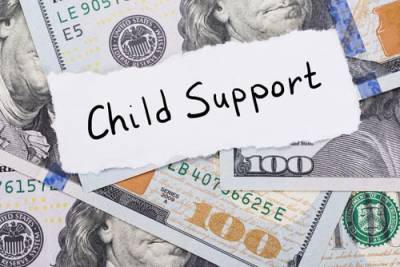Wage Garnishment and Other Consequences of Child Support Nonpayment
Posted on April 15, 2018 in Child Custody and Support
 When a couple with children divorces, the parent with less parental responsibility and parenting time is often ordered to pay child support by the court. Such a parent must make periodic payments to the other parent in order to help with child-rearing expenses. Since 1988, Illinois has allowed court-ordered child support payments to be paid through automatic income withholding. The amount of money that can be deducted from the payor’s paycheck is based on the Income Shares model. This method of determining child support takes into consideration both parents' incomes as well as the amount of parenting time and parental responsibility each parent has.
When a couple with children divorces, the parent with less parental responsibility and parenting time is often ordered to pay child support by the court. Such a parent must make periodic payments to the other parent in order to help with child-rearing expenses. Since 1988, Illinois has allowed court-ordered child support payments to be paid through automatic income withholding. The amount of money that can be deducted from the payor’s paycheck is based on the Income Shares model. This method of determining child support takes into consideration both parents' incomes as well as the amount of parenting time and parental responsibility each parent has.
When a Parent Does Not Pay His or Her Required Child Support
Sometimes, for a countless number of reasons, parents are unable or unwilling to pay their court-ordered child support. When this occurs, the recipient parent, meaning the parent with more parental responsibility who is due support payments, can petition the court to address the problem. The state of Illinois has the authority to take child support obligations from other periodic payments such as worker’s compensation and unemployment benefits.
The Child Support Enforcement Act of 1984 permits State’s Attorneys to help parents collect child support from their exes. When warranted, the State’s Attorney may serve the non-paying parent with papers which instruct them to set up a payment arrangement or face possible jail time. Imprisonment is generally a last resort since a parent in jail may struggle to generate an income with which to pay child support. More often, a State’s Attorney attempting to collect past due child support will seek consequences such as:
- Wage garnishment;
- Withholding federal tax refunds;
- Property seizure;
- Suspension of an occupational license such as a teacher, nurse, building contractor, or electrician license;
- Suspension of a business license;
- Revocation of the nonpaying parent’s driver's license; and
- Denying the nonpaying parent access to a U.S Passport.
What Should I Do if I Cannot Pay Child Support?
If you are a parent who is having trouble making your child support payments, there are things you can do to help avoid the consequences listed above. Most importantly, tell the court immediately if you know that you will be unable to make your child support payment. If you have had a major change in circumstances, like a job loss for example, the court may allow you to pay a reduced amount or even temporarily suspend your obligations.
Call Us for Help
Contact an experienced Kane County family law attorney if you have further questions about child support nonpayment. To schedule a confidential consultation at The Law Offices of Douglas B. Warlick & Associates, call 630-232-9700 today.
Sources:
https://www.illinois.gov/hfs/SiteCollectionDocuments/IncomeSharesOverviewPublicVersionRC.pdf
http://www.ilga.gov/legislation/ilcs/documents/075000050K505.htm







 When a couple with children divorces, the parent with less parental responsibility and parenting time is often ordered to pay
When a couple with children divorces, the parent with less parental responsibility and parenting time is often ordered to pay 